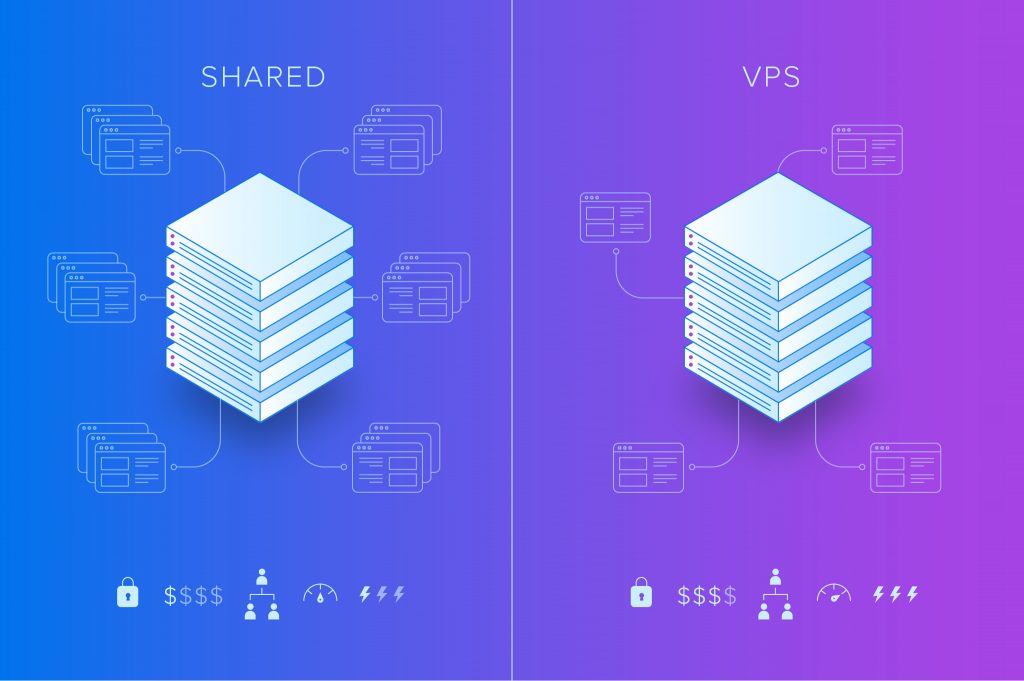Differences Between Shared Hosting And VPS
Most of you are probably well acquaint with shared hosting. However, when it comes to Virtual Private Server or VPS as it is commonly known. You probably have a vague idea of what it is. Almost every Web Hosting company offers the service of VPS. Have you ever wondered when to go for a VPS, or why is it even necessary to have one ? In this article, I’m going to underline major differences between the two types of hosting, their advantages over the other, and explain when to use them.
Shared hosting is the most common type of hosting. Which the entire dedicated server resources are share by hundreds of clients. Usually shared hosting is quite cheap, and its monthly price ranges from $1 to $15 depending upon the specifications of the package you choose. Mostly, the shared hosting is equipped with add-on to enhance your web hosting experience. For instance, the dedicated server has a website builder, one-click install application, email spam filters application, virus scanners and a lot of cool applications.
Websites with average traffic, like visitors up to a few hundred per day, work pretty well on the shared hosting. In addition to this, shared hosting has common configuration settings for all the accounts hosted on the server. When your website reaches a thousand or more visitors, or when you need flexibility in server settings, you probably want to shift to a VPS (Virtual Private Server).

VPS offers flexibility and functionalities similar to that of a dedicated server. A powerful dedicated server can host a few VPS’s depending upon the total specifications of the dedicated server, and the specifications of each virtual unit. VPS isolates the hosting account from other accounts. So in case an account is using high CPU resources, other Virtual Private Units in the same dedicated server won’t be affect. Unless cloud Linux application is install on a shared hosting server. One account using more resources can be devastating for rest of the accounts. Therefore, manual suspension of the account can solve the problem.
Some of the great functionalities associated with the VPS are, full root SSH access, choice of your own OS or cPanel, and then customization of cPanel settings like PHP versions, apache configurations, DNS settings and similar tweaks. For instance, you require Fedora to be install. Whereas the hosting company has CentOS installed, or if you require root privileges, you would probably need a VPS.
Despite the fact VPS offers powerful features, it is definitely as customizable as a full dedicated server. However, VPS is much cheaper than a dedicated server. In a lesser price you can have the exciting features of a dedicated server. Unless you have a fully manage VPS, you have to manage everything in your VPS ranging. From control panel updates, firewall configurations and DNS settings to a number of errors occurring from miss-configuration like internal server error. On the other hand, a shared hosting is usually fully manage by the Web Hosting Provider. The shared hosting doesn’t have as many issues as there are in a self-maintained VPS.
Therefore, utilize the service of a VPS when the traffic of your website grows, or you need a customized solution. For an average website, use various shared hosting packages according to the needs.


